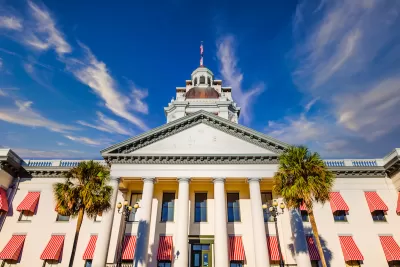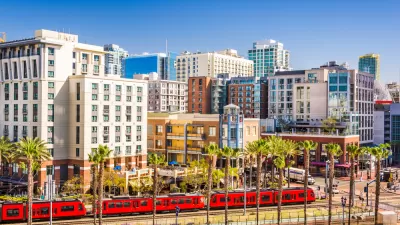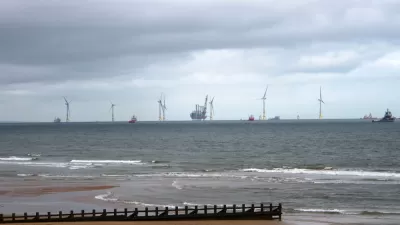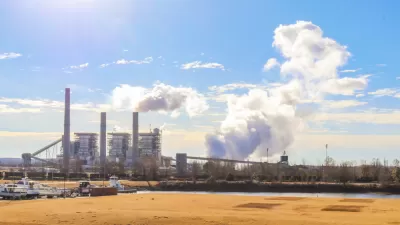A new state law eliminates language calling for a reduction in greenhouse gas emissions and makes it easier to build natural gas pipelines.

Florida state agencies are beginning to roll back renewable energy goals after a new law signed by Governor Ron DeSantis repeals previously established clean energy targets, reports Jim Saunders for News Service of Florida. “Utilities in recent years have dramatically expanded construction of solar energy facilities as technology has improved and costs have decreased. A House staff analysis of the new law said renewable energy generated about 6% of the electricity used in the state in 2021; that number is expected to reach 28% by 2032.”
“The law (HB 1645) signed last week by DeSantis revamps state energy policies, including deleting part of a law that directed the Department of Agriculture and Consumer Services to establish ‘goals and strategies for increasing the use of renewable energy in this state.’” Consequently, the state’s Department of Agriculture and Consumer Services’ Office of Energy issued a proposal repealing the goals.
The law also removes references to greenhouse gas emissions, bans potential offshore wind energy, calls for “encouraging a ‘cost-effective and affordable energy supply,’” eases regulations for building natural gas pipelines, and calls for exploration into nuclear power options.
FULL STORY: Florida begins to repeal renewable energy goals

Maui's Vacation Rental Debate Turns Ugly
Verbal attacks, misinformation campaigns and fistfights plague a high-stakes debate to convert thousands of vacation rentals into long-term housing.

Planetizen Federal Action Tracker
A weekly monitor of how Trump’s orders and actions are impacting planners and planning in America.

In Urban Planning, AI Prompting Could be the New Design Thinking
Creativity has long been key to great urban design. What if we see AI as our new creative partner?

How Trump's HUD Budget Proposal Would Harm Homelessness Response
Experts say the change to the HUD budget would make it more difficult to identify people who are homeless and connect them with services, and to prevent homelessness.

The Vast Potential of the Right-of-Way
One writer argues that the space between two building faces is the most important element of the built environment.

Florida Seniors Face Rising Homelessness Risk
High housing costs are pushing more seniors, many of them on a fixed income, into homelessness.
Urban Design for Planners 1: Software Tools
This six-course series explores essential urban design concepts using open source software and equips planners with the tools they need to participate fully in the urban design process.
Planning for Universal Design
Learn the tools for implementing Universal Design in planning regulations.
Gallatin County Department of Planning & Community Development
Heyer Gruel & Associates PA
JM Goldson LLC
City of Camden Redevelopment Agency
City of Astoria
Transportation Research & Education Center (TREC) at Portland State University
Jefferson Parish Government
Camden Redevelopment Agency
City of Claremont





























